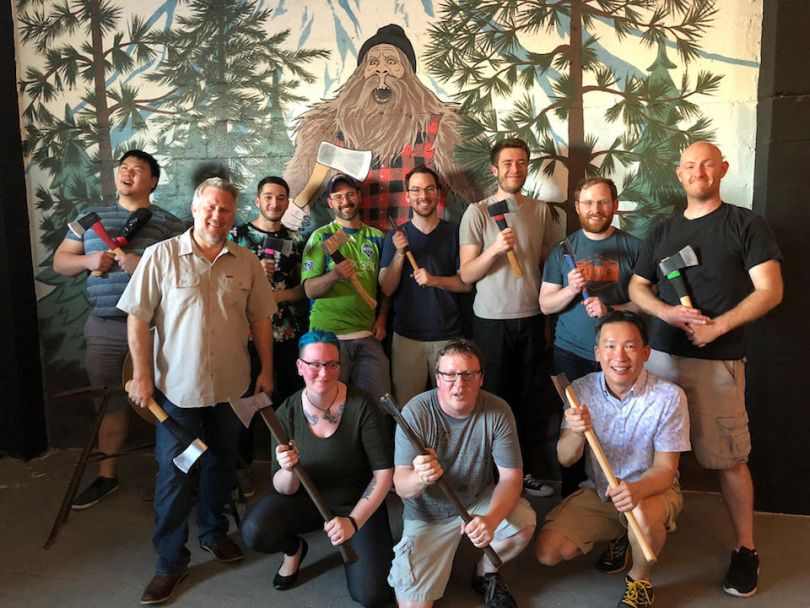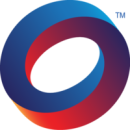In this day and age, engineering teams often spend their workdays solving problems that their forebears never had to confront before. And how those teams collaborate to overcome those challenges goes a long way in defining the team’s culture.
In part one of a two-part series, we checked in with engineering leaders at four Seattle startups to learn what makes their team culture unique — and what they’re looking for in new members.
As digital technology reaches into every possible industry, many businesses struggle to find the engineering talent they need to survive in a transformed economy. Karat conducts first-round interviews for software engineering roles and provides data-driven recommendations for businesses to use in later onsite meetings. Through a combination of structured and consistent interview data, the company becomes smarter and more predictive with each interview.
Engineering Manager Kevin Bao said mentorship is a massive part of Karat’s engineering team culture.
What are some of the most unique things about your team that make it special?
Our team always follows an “assume best intent” mentality. When we have questions or disagree, it’s brought to attention from an exploratory perspective and we try not to jump ahead to conclusions — though differing opinions are welcome in the context of coming to an agreement. This creates a very collaborative team feeling and prevents combative finger pointing. It also allows us to introspect and unveil the best practices that work for the whole team. We’re trying to build a team together.
Mentorship — both providing it and receiving it — is a big part of our team culture.”
What do you look for when hiring for your engineering team? How can you tell when someone has something unique to add to your culture, and are there any traits that all your team members share?
We look for people who have an interest in our mission to make technical interviewing rigorous and fair. We look for the ability to put the human first, while balancing rigor and an excellent user experience when it comes to each challenge we encounter on our mission. We want people who have opinions and unique perspectives, but are willing to hear others out and make decisions as a team. Our team members have a high degree of respect for one another, a strong sense of ownership and accountability, and a growth mindset. Mentorship — both providing it and receiving it — is a big part of our team culture.

Tango Card’s software platform allows businesses to reward their employees with e-gift cards, prepaid cards and donations to nonprofits. It has been a big 12 months for the West Seattle company, which ranked inside Inc. Magazine’s 1,000 fastest-growing companies in the country, featured on Built In Seattle’s 50 Tech Companies to Know and, most recently, acquired Omaha, Neb.-based GiftCertificates.com with the help of a $10 million investment from FTV Capital.
When Engineering Manager Donald Johnstone interviews applicants for his team, he looks for culture first.
What are some of the most unique things about your team that make it special?
I’ve had the opportunity to work within a good number of engineering teams at previous companies — both good and bad. The teams that I love working with move fast, understand the business impact of what they are working on, push themselves with the understanding that there are going to be failures and believe in the products they are creating and supporting. They celebrate their victories and don’t punish each other’s failures. I’ve been on teams that plant a trophy of dishonor on the desk of the last individual to break the build — a great team or individual experience.
A number of the things that I love on my teams don’t magically appear. For example, understanding our impact on the business requires a high level of transparency by management and the non-engineering business side of the house to empower the team to understand how they are affecting the customers.
We have daily technical challenges that we are trying to solve. We have a good balance of senior engineers and junior engineers, which makes an energizing team dynamic. We celebrate our victories and learn from our failures. We are constantly pushing ourselves, and I can honestly say that I love the team that I’m working with right now.
While technical expertise is awesome and is always highly needed, it takes a back seat to fitting into the culture.”
What do you look for when hiring for your engineering team? How can you tell when someone has something unique to add to your culture, and are there any traits that all your team members share?
While technical expertise is awesome and is always highly needed, it takes a back seat to fitting into the culture. During the interview process, I tend to be looking at answering a number of questions: “Is this individual someone that I or the team would want to work with?”; “How does this individual handle training another person in a technology?”; “How does this individual communicate a technical idea to another engineer versus a non-engineer?”; and “How does this individual handle learning something new?”
A really excellent trait that my team shares is their individual humility. Just like my junior engineers, my senior engineers are constantly learning new technologies and new approaches to solving problems. They are not afraid of asking for help. They are willing to jump in and explore without being hindered by the thought of, “what if this fails?” And if something does fail, what can we learn from it?

Digital Control is a world leader in locating and steering horizontal directional drilling technology. The company’s hardware and software allows the installation of underground utilities — gas, sewer and water lines, telecommunications and so on — without digging trenches and disturbing man-made and natural environments on the surface. Headquartered in Kent, the company has offices in Germany, Australia, India, Russia and China, and offers a range of tools, displays, transmitters and software products.
When hiring for his team, Director of Engineering Chris Cavage looks for genuine enthusiasm for collaboration in applicants.
What are some of the most unique things about your team that make it special? (Please be specific.)
Digital Control’s engineering team has a very unique culture because our set of cross-cutting concerns ranges from the physics of electromagnetics, microcontrollers, mechanical engineering and industrial design all the way through to mobile, web and virtual reality software development. We have specialists and generalists for all domains, and watching everyone work together towards a common goal to build smart hardware products that real customers can touch, feel and interact with is richly rewarding. Everyone knows a little bit of everything, and our company’s focus on creative freedom and innovation allows engineers to constantly challenge and grow in ways you won’t find at the big-box companies. There is also a diverse level of staff experience present, with strong mentorship of junior engineers to help them grow and become domain experts.
We focus on the fundamentals of engineering rather than the latest buzzword technology.’”
What do you look for when hiring for your engineering team? How can you tell when someone has something unique to add to your culture, and are there any traits that all your team members share?
We take engineering hiring very seriously at Digital Control because, as a leader in our industry, it takes strong engineering talent to innovate our products at the rates our customers demand. First and foremost, we focus on the fundamentals of engineering rather than the latest “buzzword technology.” We look for people who can and want to learn, can problem solve and, most importantly, can think. Because collaboration is so important here, candidates need to demonstrate that they can be effective when working with others and outside their sandboxes. We use “what if?” scenario-based interviewing to screen for this. These are often gut checks, but we’ve become pretty good at spotting genuine enthusiasm from those who want to build stuff versus those who just want to punch a clock!

Tempered Networks builds networking infrastructure software for IoT devices that replace firewalls as a layer of security. The company’s software segments, connects and manages devices across geographic locations and, through point-and-click “identity defined networking,” the company claims it can reduce attack surfaces by 90 percent. Founded in 2014, the company has raised almost $40 million to date.
Vice President of Product Development Bryan Skene said joining his company’s engineering team means taking on a steep learning curve — and he has a few ways to figure out if an applicant has what it takes.
What are some of the most unique things about your team that make it special?
We have mostly a full-stack, multi-skilled senior team. About three-quarters of our developers have more than 20 years in networking and security under their belts, building products and supporting real customers. Almost everyone in product development has come up with at least a medium-sized good idea, and we are team-first. As the engineering leader, I fight to protect the notion that the best ideas win and can come from anyone. I also subscribe to the fact that creativity and fear are mutually exclusive, and you get way more from developers that are having fun building cool products than worrying about a perfect process or attendance.
As a little startup that is going to take off, I need every hire to potentially become a mentor and leader in our next growth spurt.”
What do you look for when hiring for your engineering team? How can you tell when someone has something unique to add to your culture, and are there any traits that all your team members share?
Most applicants decide before we talk to them whether networking and security are things they care about — and whether they have the persistence and interest to tackle the steep learning curve. They will have thought a lot about it, and probably have written some code. About half the energy I spend in the interview is to determine when or how the candidate might get stuck on tough challenges. I try to ascertain whether their manager and team will be able to help them get through and overcome these challenges. I look at their past choices and behavior, which people generally reveal if you simply ask in a direct, respectful manner. Are they honest in admitting some challenges, or are they projecting a brand? Have they had to dominate their team to get stuff done? Or must they be watched over and told what to do forever — meaning more management and less engineering for the leads? Or will they go rogue and thus have a low potential impact?
If all goes well, they share honest observations on how they work best, and I get a feel for whether the team will be better if the candidate joins us. Occasionally I meet someone with the right mix of curiosity, skills, team-first attitude and courage, and when this happens, the feeling is generally mutual and we land someone on the team. As a little startup that is going to take off, I need every hire to potentially become a mentor and leader in our next growth spurt.








